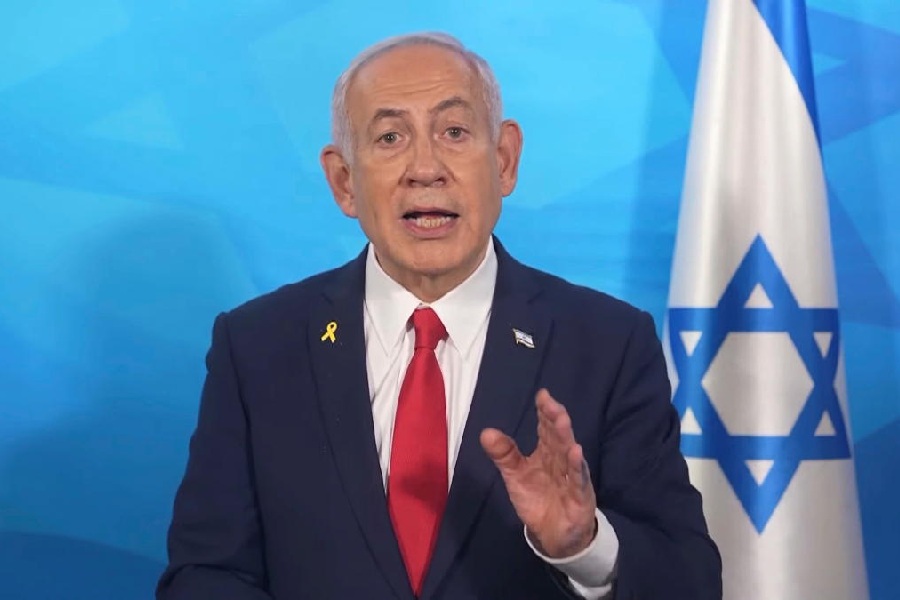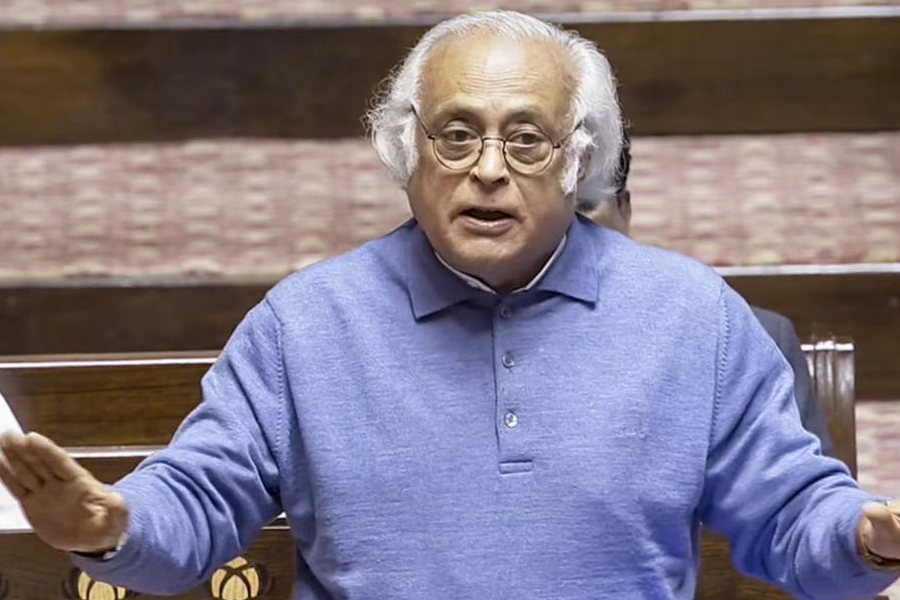When Hamas attacked Israel on October 7, 2023, setting off the war in the Gaza Strip, Prime Minister Benjamin Netanyahu’s political career seemed doomed. Nearly two years later, the war is still going, and Netanyahu has assumed a position of rare domestic strength.
Our six-month investigation, containing many details that have never been previously reported, tells the behind-the-scenes story of how Netanyahu survived and then prospered as the war dragged on. The article brings readers to Netanyahu’s hospital ward in July 2023, to his home in the minutes after the October 7 attack began, to the Israeli military headquarters in the days that followed and inside several ceasefire negotiations and Israeli cabinet discussions throughout 2024 and 2025.
Through interviews with more than 110 officials in Israel, the US and across the Arab world, as well as a review of dozens of government records and other documents, we reveal how Netanyahu’s actions first made Israel more vulnerable to the October disaster and then helped to prolong and expand the ensuing war. Unexpectedly, the war’s expansion allowed Israel to defeat Hezbollah and bruise Iran. But its extension in Gaza brought relentless misery for Palestinians, led to the deaths of Israeli hostages and allowed Netanyahu to defer a political reckoning.
Here are five takeaways from the investigation.
- Before Oct 7, Netanyahu ignored repeated warnings about a potential attack
As Netanyahu convalesced in his pyjamas in the hospital in July 2023, a senior general brought him a troubling intelligence assessment. The report warned that Israel’s enemies, including Hamas, had taken note of the country’s domestic turmoil, set off by Netanyahu’s divisive plan to weaken the judiciary, and were preparing an attack.
Netanyahu ignored this and other warnings, and his government went ahead with the overhaul, passing a law hours later that limited the judiciary’s power, setting off more unrest. Two days later, Hamas’s leaders once again noted the turmoil in Israel — and decided the time was right to proceed with a long-planned attack.
- Netanyahu deflected responsibility and tried to blame defence officials
Minutes after the attack began in October 2023, at the nadir of his political career, Netanyahu was already planting the seeds for his personal survival act. “I don’t see anything in the intelligence,” Netanyahu said in one of his first phone calls that day. It was his first deflection of blame and an early hint of how Netanyahu would try to prolong his political life by blaming the security and intelligence chiefs for failing to prevent the attack.
As fighting still flared in southern Israel, Netanyahu’s team then briefed sympathetic influencers, telling them that it was the generals who were at fault for Israel’s worst-ever defence failure. At the same time, they moved to prevent the leak of conversations that might prove problematic to Netanyahu, stopped the military from creating official recordings of their meetings with Netanyahu and arranged for the searching of generals — including Herzi Halevi, the army chief — for hidden microphones.
Later in the war, Netanyahu’s team ordered archivists to alter the official records of his earliest phone calls on October 7. Then they leaked a sensitive document to a foreign newspaper — circumventing Israel’s military censorship system — in order to discredit Netanyahu’s critics, including distraught families of hostages still in Gaza.
To avoid alienating far-Right allies, Netanyahu dragged out truce negotiations
In the opening hours of the war, Netanyahu turned down an offer from Israel’s Opposition leader to form a unity government, preferring to remain in a coalition with far-Right extremists who were more likely to let him remain in power after the war. That decision made him beholden throughout the war to the far-Right’s demands — in particular on the question of whether and when to reach a truce with Hamas.
When momentum towards a ceasefire seemed to grow, Netanyahu ascribed sudden significance to military objectives that he previously seemed less interested in pursuing and that top military officials told him were not worth the cost, such as the capture of the southern city Rafah and later the occupation of the Gaza-Egypt border.
Saudi Arabia and the US were willing to make a landmark Israeli-Saudi peace deal. Netanyahu demurred
During intense talks with American counterparts in May 2024, the Saudi leadership took the risky step of signalling it was ready to form formal ties with Israel — as long as the Gaza war ended, the US made concessions to Saudi Arabia and Israel began the process of recognising Palestinian statehood. “Let’s finish this,” Saudi Arabia’s de facto ruler, Crown Prince Mohammed bin Salman, said in one late-night meeting about the US-Saudi parts of the deal.
Netanyahu’s resistance to taking that path was among the many issues that strained US-Israeli relations under President Joseph R. Biden Jr. As the death toll in Gaza rose in December 2023, Biden grew so frustrated during one call with Netanyahu that he abruptly ended the conversation. As ceasefire talks stalled months later, American officials cited polls showing that more than 50 per cent of Israelis now supported a hostage deal rather than continued war.
“Not 50 per cent of my voters,” Netanyahu replied.
Conflict in Lebanon, Syria and Iran helped restore Netanyahu’s lost prestige
At the start of the war, Netanyahu avoided steps that might expand the conflict into an all-out war with Hezbollah and Iran, key allies of Hamas. He called off a major attack on Hezbollah in the war’s opening days and avoided uncontrollable escalations with Iran.
But nearly a year into the war, a sequence of unforeseen intelligence successes led Israel to kill several senior Hezbollah commanders. Now emboldened, Netanyahu ordered the assassination of Hezbollah’s leader and the invasion of its heartland in southern Lebanon, destroying much of its arsenal.
Then, Israel managed to wipe out much of the Iranian air-defence system — significantly undermining the Iranian threat. Now neither Iran nor Hezbollah could protect President Bashar al-Assad of Syria against a rebel advance, prompting the ouster of another longtime nemesis of Israel.
With Tehran unusually vulnerable, Netanyahu then proceeded with an attack on Iran that became the greatest episode of his political career. Celebrated in Israel as a victory, the military campaign left Netanyahu’s party in a stronger polling position than at any point since October 2023.
New York Times News Service










